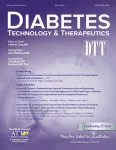(Press-News.org) A new discovery by researchers at the University of Warwick could help stop bacteria being contaminated with viruses, reducing disruption and decreasing costs in industry and research.
Bacteria are routinely used in biological and biomedical research. They are crucial in food production and emerging industrial biotechnologies, where bacterial ‘factories’ can be used to produce new materials, medicines and chemicals. Industrial biotechnology uses microorganisms as alternatives to traditional industrial processes, and is crucial for sustainable development. However, these microorganisms, like us, are subject to getting an infection.
Bacteria-targeting viruses, ‘phage’ infections can easily contaminate laboratories and microbial factories. This leads to significant down-time in research and industrial processes, costing money, plus stringent and slow disinfectant protocols to rectify.
The research, published today in the Journal of the American Chemical Society shows how a simple material added to bacteria can prevent infection. This new discovery, emerging from the University of Warwick’s Chemistry, Medical School and Life Sciences departments, in collaboration with bioscience company Cytiva Ltd, aims to develop the next-generation industrial biotechnologies and remove a bottleneck in fundamental research.
Professor Matthew Gibson, Department of Chemistry and Warwick Medical School at the University of Warwick, said: “Our cross-disciplinary team has been looking at how we can deploy biomaterials to address healthcare and biotechnological challenges, and the phage-contamination issue is a big one. We screened a large number of polymers (big molecules) and found one which was particularly active, preventing the phage from killing bacteria, and stopping their replication.
“What is very exciting, is that the polymer we discovered is already produced at industrial scale and is easy to use by simply adding into the liquids already used for bacterial growth. Our discovery may help the sustainable manufacture of chemicals, materials and medicines using bacteria, by preventing contamination and loss of bacterial factories due to infection”.
Dr Antonia Sagona, Associate Professor at the University of Warwick’s School of Life Sciences, added: “We have been collaborating with Professor Matthew Gibson and his team to combine our expertise in phage technologies, with their biomaterials and chemistry skills. Combining our expertise has enabled us to discover this exciting material to control phage infections. We are continuing to explore this together, as well as investigating materials for the storage of phage for other applications.”
Dr Peter Kilbride, Senior Scientist at Cytiva, comments: “Cytiva and the team at the University of Warwick have an established collaboration, where we have been using their biomaterials expertise to address biotechnological problems including how to store and transport biologics. This latest discovery shows how polymer materials can make a large impact in the biotechnological space, controlling the huge issue of phage contamination. We are exploring more aspects of this with the University of Warwick.”
This research was funded by the BBSRC, Royal Society and Cytiva.
Access the paper here: https://doi.org/10.1021/jacs.3c01874
END
New discovery stops bacterial virus contamination
2023-04-17
ELSE PRESS RELEASES FROM THIS DATE:
A meta-analysis of hybrid-closed loop control-IQ technology
2023-04-17
A new study evaluated the effect of hybrid-closed loop Control-IQ technology in the pooled data from three randomized controlled trials, comparing Control-IQ to a control group using continuous glucose monitoring in people with type 1 diabetes. The study, which examined subgroup based on baseline characteristics such as race/ethnicity, socio-economic status, pre-study insulin delivery modality, and baseline glycemic control, is published in the peer-reviewed journal Diabetes Technology & Therapeutics (DTT). Click here to read the article now.
Roy W. Beck, MD, PhD, from the JAEB ...
Leaps in artificial blood research aim to improve product safety, efficacy
2023-04-17
COLUMBUS, Ohio – Researchers have made huge strides in ensuring that red blood cell substitutes – or artificial blood – are able to work safely and effectively when transfused into the bloodstream.
The key is to make the artificial blood molecules big enough so they don’t leak from blood vessels into tissue and cause dangerous cardiovascular side effects, notes a new study led by researchers from The Ohio State University.
Although blood loss is typically treated by transfusing units of donated blood, in cases where transfusions aren’t readily ...
Ye receives funding for collaborative research: Ri: Small: Motion Field Understanding for Enhanced Long-Range Imaging
2023-04-17
Jinwei Ye, Assistant Professor, Computer Science, received funding from the National Science Foundation for the project: "Collaborative Research: RI: Small: Motion Field Understanding for Enhanced Long-Range Imaging."
Ye is collaborating with Nianyi Li, Assistant Professor of Computer Science at Clemson University, and Suren Jayasuriya, Assistant Professor, Arts Media and Engineering, and Assistant Professor, School of Electrical, Energy and Computer Engineering, at Arizona State University.
As ...
VA, NIH launch study of Gulf War Illness
2023-04-17
The Department of Veterans Affairs (VA) and National Institutes of Health have launched a study to gain a better understanding of the chronic symptoms of Gulf War Illness. The disease affects multiple systems in the body and includes chronic symptoms such as fatigue, headache, memory and cognitive difficulties, joint and muscle pain, poor sleep, and problems with gastrointestinal and respiratory function. It affects about a third of the nearly 700,000 men and women who served in the Persian Gulf during operations Desert Shield and Desert Storm.
“This is an important collaboration that we hope will lead to many answers to those ...
The 411 on marijuana use and cardiovascular health ahead of 4/20 Day
2023-04-17
DALLAS, April 17, 2023 — Legalization of marijuana, for both medical and recreational use, is on the rise across the U.S. The American Heart Association, the world’s leading nonprofit organization focused on heart and brain health for all, warns that using marijuana may increase your risk of deadly cardiovascular diseases, heart attacks and strokes, according to research evidence noted in two scientific statements published by the Association.
The Association’s 2020 scientific statement Medical Marijuana, Recreational Cannabis, and Cardiovascular Health, ...
Researchers discover a new embryonic brain circuit
2023-04-17
EMBARGOED UNTIL 17-APR-2023 11:00 ET
Basel, April 17, 2023 Using a new approach for studying live embryonic mouse brains at single-cell resolution, researchers have identified an active multi-layer circuit that forms in the cortex during an unexpectedly early stage of development. Perturbing the circuit genetically led to changes similar to those seen in the brains of people with autism. The findings are reported today in Cell by a team based at the Institute of Molecular and Clinical Ophthalmology Basel.
“Understanding the detailed development of cell types and circuits in the cortex can provide ...
Study links poor diet to 14 million cases of type 2 diabetes globally
2023-04-17
A research model of dietary intake in 184 countries, developed by researchers at the Friedman School of Nutrition Science and Policy at Tufts University, estimates that poor diet contributed to over 14.1 million cases of type 2 diabetes in 2018, representing over 70% of new diagnoses globally. The analysis, which looked at data from 1990 and 2018, provides valuable insight into which dietary factors are driving type 2 diabetes burden by world region. The study was published April 17 in the journal Nature Medicine.
Of the 11 dietary factors considered, three had an outsized contribution to the rising global incidence of type 2 diabetes: ...
SpyLigation uses light to switch on proteins
2023-04-17
Scientists can now use light to activate protein functions both inside and outside of living cells. The new method, called light-activated SpyLigation, can turn on proteins that are normally off to allow researchers to study and control them in more detail. This technology has potential uses in tissue engineering, regenerative medicine, and understanding how the body works.
Proteins perform nearly every important task in biology, including processing DNA, metabolizing nutrients, and fighting off infections. When, where, and how proteins become active is important for a variety of biological processes. Increasingly, ...
Dexamethasone for inpatients with COVID-19 in a national cohort
2023-04-17
About The Study: In this national multicenter cohort study of inpatients with COVID-19, early administration of dexamethasone was associated with significantly reduced odds of mortality or discharge to hospice in those requiring supplemental oxygen or mechanical ventilation and/or extracorporeal membrane oxygenation but not in those requiring no supplemental oxygen or noninvasive positive pressure ventilation. These results support the continued use of systemic dexamethasone in patients hospitalized with COVID-19.
Authors: Laine ...
Investigational drug may improve stem cell transplantation for multiple myeloma patients
2023-04-17
The standard treatment for patients with multiple myeloma often includes stem cell transplantation in which the patient’s own stem cells are harvested and stored while the patient receives intensive chemotherapy to kill the cancer. Then, the patient’s stem cells are returned to the patient to help with recovery. But for a significant proportion of patients, the number of stem cells that can be harvested is not optimal for transplant and negatively affects patient outcomes.
However, an international phase 3 clinical trial led by physicians at Washington University School of Medicine in St. Louis has shown that the investigational ...




